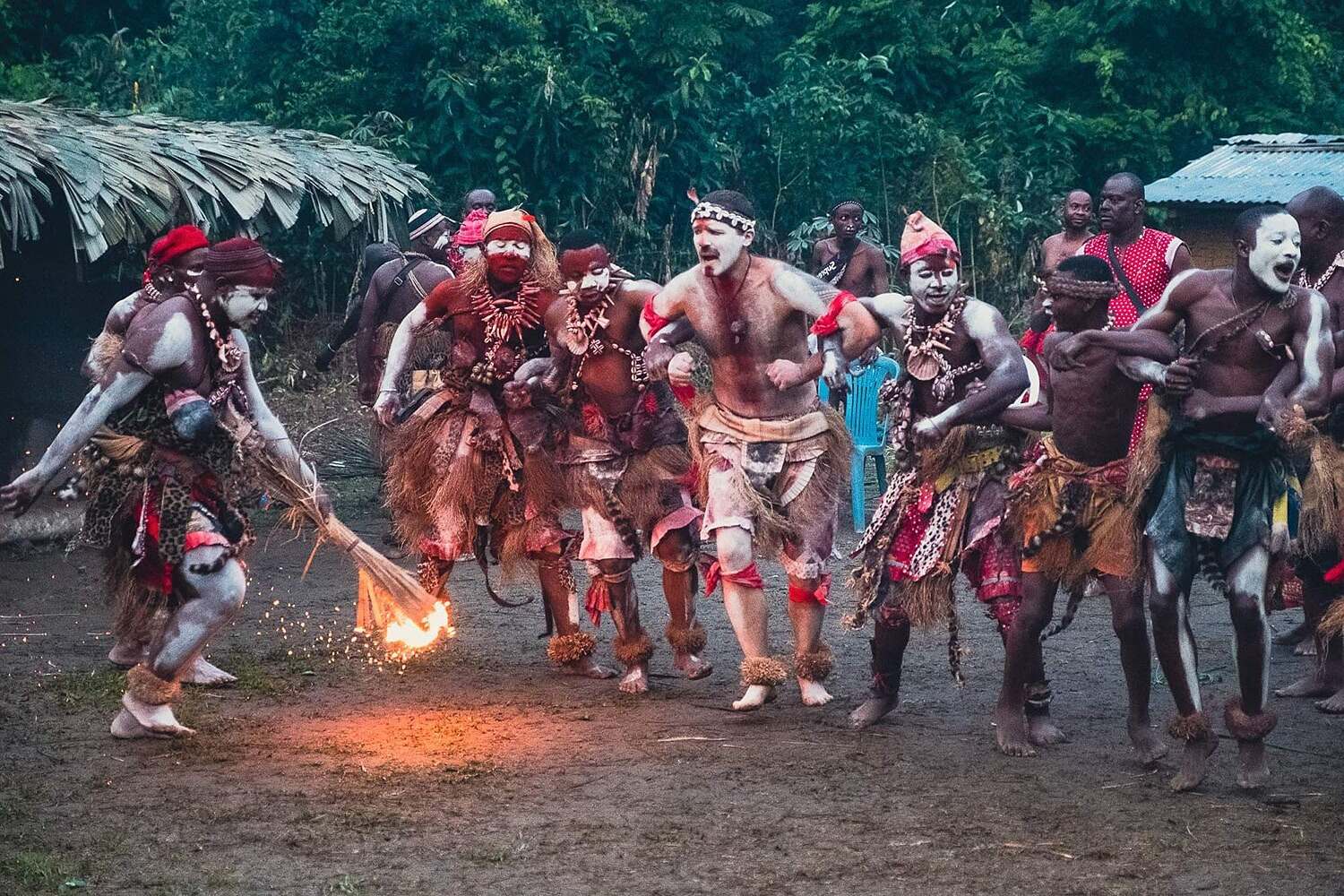
Bwiti is a spiritual practice originating from the Fang and Mitsogo peoples of Gabon and Cameroon. This tradition centers around the use of the iboga plant, which is believed to connect practitioners with their ancestors and the spiritual world. Iboga plays a crucial role in Bwiti ceremonies, often used to induce deep spiritual experiences and healing. This practice combines elements of animism, ancestor worship, and Christianity, creating a unique blend of beliefs and rituals. Bwiti ceremonies are known for their vibrant music, dance, and symbolic rituals, all aimed at fostering a sense of community and spiritual enlightenment. Curious about the intricate details of this fascinating tradition? Let's dive into 30 captivating facts about Bwiti that will broaden your understanding of this rich cultural heritage.
Bwiti: An Ancient Spiritual Practice
Bwiti is a spiritual tradition practiced by the Fang and Mitsogo people of Gabon and Cameroon. This practice revolves around the use of the iboga plant, which is believed to have powerful spiritual and healing properties.
- Bwiti is a syncretic religion that blends elements of animism, ancestor worship, and Christianity.
- The word "Bwiti" means "ancestor" in the Fang language.
- Iboga, a psychoactive plant, is central to Bwiti rituals and is used to induce spiritual visions.
- Bwiti ceremonies often include music, dance, and chanting to create a trance-like state.
- The practice of Bwiti dates back hundreds of years, though its exact origins are unclear.
The Role of Iboga in Bwiti
Iboga is not just a plant; it's considered a sacred tool within Bwiti. Its use is deeply embedded in the spiritual and cultural fabric of the practice.
- Iboga contains the alkaloid ibogaine, which has psychoactive properties.
- Initiates consume iboga to undergo a rite of passage, often experiencing intense visions.
- Iboga is believed to connect individuals with their ancestors and the spiritual world.
- The plant is also used for healing purposes, both physical and psychological.
- Iboga ceremonies can last several days, involving fasting and isolation.
Bwiti Ceremonies and Rituals
Ceremonies in Bwiti are elaborate and deeply symbolic. They serve various purposes, from healing to initiation into adulthood.
- Bwiti ceremonies often take place at night, believed to be a time when spirits are more active.
- Participants wear traditional clothing and body paint to signify their roles.
- Music is a crucial element, with instruments like the ngombi (harp) and drums setting the rhythm.
- Chanting and singing are used to invoke spirits and guide participants through their visions.
- Fire is a common element in ceremonies, symbolizing purification and transformation.
The Symbolism in Bwiti
Every aspect of Bwiti is rich in symbolism, reflecting the deep spiritual beliefs of its practitioners.
- The iboga root is often referred to as the "Tree of Knowledge" or "Tree of Life."
- Masks worn during ceremonies represent different spirits and ancestors.
- The use of mirrors in rituals symbolizes self-reflection and the journey within.
- Water is used in purification rites, symbolizing cleansing and renewal.
- The color white is significant, representing purity and the spirit world.
Bwiti and Modern Medicine
While Bwiti is an ancient practice, it has caught the attention of modern medicine, particularly for its use of iboga.
- Ibogaine, derived from iboga, is being studied for its potential to treat addiction.
- Some Westerners travel to Gabon to participate in Bwiti ceremonies for therapeutic purposes.
- Bwiti practitioners believe that iboga can cure various ailments, from mental health issues to physical diseases.
- The World Health Organization has recognized the potential benefits of ibogaine but warns of its risks.
- Despite its benefits, ibogaine can be dangerous if not administered correctly, requiring careful supervision.
The Cultural Impact of Bwiti
Bwiti is more than a spiritual practice; it's a cultural cornerstone for the Fang and Mitsogo people.
- Bwiti rituals are often community events, strengthening social bonds.
- The practice has influenced local art, music, and dance, enriching the cultural heritage.
- Bwiti teachings emphasize respect for nature and the environment.
- The tradition is passed down orally, with elders teaching the younger generation.
- Despite modernization, Bwiti remains a vital part of the cultural identity in Gabon and Cameroon.
Final Thoughts on Bwiti
Bwiti, a spiritual practice from Gabon, offers a unique blend of rituals, music, and plant medicine. Its use of iboga for deep spiritual journeys sets it apart from many other traditions. This practice isn't just about ceremonies; it's a way of life for the Mitsogo and Fang people. Bwiti's teachings emphasize community, healing, and a profound connection to nature. While it may seem mysterious to outsiders, those who participate often find a deep sense of clarity and purpose. Whether you're curious about its rituals or the healing properties of iboga, Bwiti offers a rich tapestry of cultural and spiritual insights. Exploring Bwiti can open doors to understanding different ways of perceiving the world and healing the soul.
Was this page helpful?
Our commitment to delivering trustworthy and engaging content is at the heart of what we do. Each fact on our site is contributed by real users like you, bringing a wealth of diverse insights and information. To ensure the highest standards of accuracy and reliability, our dedicated editors meticulously review each submission. This process guarantees that the facts we share are not only fascinating but also credible. Trust in our commitment to quality and authenticity as you explore and learn with us.


